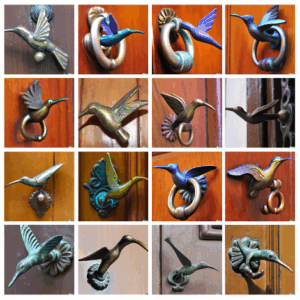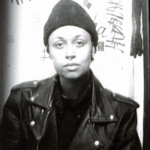A[]RTS: Artificial intelligence, artistic intelligence & possible futures for the arts
Oct 9, 2025 3:45-5:00pm Eastern/12:45-2pm Pacific
 What might the future of the Arts look like in the age of AI? Join us for a transdisciplinary conversation that critically explores the disruptive impacts of artificial intelligence on creative labor, education, and artistic identity—while imagining new, generative possibilities for artistic practice made possible by creative uses of generative AI.
What might the future of the Arts look like in the age of AI? Join us for a transdisciplinary conversation that critically explores the disruptive impacts of artificial intelligence on creative labor, education, and artistic identity—while imagining new, generative possibilities for artistic practice made possible by creative uses of generative AI.
The bracketed space in A[]RTS—the “[]”—harbors an open space pregnant with possibilities. Uncertainty of how this space is filled creates both excitement and apprehension. This webinar conversation invites us to confront both. On one side: the automation of creative work, extraction of artists’ content without consent, and deepening inequalities that marginalize already vulnerable creators. On the other: new tools for experimentation, expanded forms of collaboration, and evolving definitions of artistic agency opening new horizons for creativity.
As Generative AI continues to transform working in the arts, what are the questions we need to be asking now? What strategies could we employ to fill the open bracket [] for generating positive futures for the Arts?
Key Takeaways from A[]RTS: Artificial Intelligence, Artistic Intelligence & Possible Futures for the Arts
- Understand the risks AI poses to creative labor, authorship, and equity in the arts.
- Explore the creative potential of AI as a tool for experimentation and collaboration.
- Learn strategies for protecting creative agency and supporting inclusive practices.
- Discover examples of both resistance and innovation in AI-driven art.
- Contribute to a global, cross-disciplinary conversation about the future of the Arts.
Audience
This webinar is ideal for creatives, educators, technologists, and anyone curious about the evolving relationship between AI and human creativity. Whether you are a designer, performer, writer, or educator, this session provides a platform to rethink your role in a world increasingly shaped by AI-enhanced workflows for creative practice.
Join us to discuss how artificial intelligence is reshaping creative practice—and how artists, educators, and cultural institutions can respond with critical insight, ethical intention, and imaginative action.
To support authentic and critical discussion, a full Zoom recording will not be available. Registered participants can receive a summary of the panel conversation.
Registration
Registration for a2ru webinars is free for a2ru individual members and for those affiliated as faculty, students, or staff at a2ru institutional or departmental members. Please use your institutional email while registering.
Registration for non-members is $20, and registration for non-member students is $10.
Panelists
Ye Sul Park
Ye Sul Park is a researcher focused on the intersections of new media, artificial intelligence (AI), and art pedagogy. Full bio coming soon!
Shawné Michaelain Holloway
 SHAWNÉ MICHAELAIN HOLLOWAY is a new media artist and poet. Known for her noisy experimental electronics and performance practice, HOLLOWAY shapes the rhetorics of computer programming and sadomasochism into tools for exposing structures of power. She has spoken and exhibited work internationally since 2012 in spaces like Performance Space New York, The New Museum, The Kitchen, The Time-Based Art Festival at the Portland Institute for Contemporary Art, Institute of Contemporary Arts (London), The Knockdown Center, and the NRW-Forum Düsseldorf. SHAWNÉ is currently an Assistant Professor of Kinetic Imaging at Virginia Commonwealth University and a co-director of netizen.org. In addition to her work in the arts, she is an open source software advocate and a bodybuilder.
SHAWNÉ MICHAELAIN HOLLOWAY is a new media artist and poet. Known for her noisy experimental electronics and performance practice, HOLLOWAY shapes the rhetorics of computer programming and sadomasochism into tools for exposing structures of power. She has spoken and exhibited work internationally since 2012 in spaces like Performance Space New York, The New Museum, The Kitchen, The Time-Based Art Festival at the Portland Institute for Contemporary Art, Institute of Contemporary Arts (London), The Knockdown Center, and the NRW-Forum Düsseldorf. SHAWNÉ is currently an Assistant Professor of Kinetic Imaging at Virginia Commonwealth University and a co-director of netizen.org. In addition to her work in the arts, she is an open source software advocate and a bodybuilder.
Heidi Boisvert

Heidi Boisvert is an interdisciplinary artist, experience designer, creative technologist, and researcher who interrogates the neurobiological and socio-cultural effects of media and technology. She architects expanded reality and transmedia storytelling experiences and devises networked dance and theatre to examine the role of the body, the senses, and emotion in human perception and social change. Boisvert founded futurePerfect lab, a creative agency and think-tank that harnesses pop culture, emerging technology and neuroscience to ignite culture change. She designed the first 3D social change game, ICED, to shift the frame around immigration and America 2049, an alternative reality game about pluralism. She also co-founded XTH, a startup developing open-source biocreative instruments. Boisvert has been a TED speaker, Rockefeller Creativity + Technology = Enterprise Fellow, and a cultural ambassador in Turkey. Presently, she is working with David Byrne on Theater of the Mind, an immersive theater piece and co-curating EdgeCut, a live performance series exploring human-digital relationships. Boisvert is Assistant Professor of AI and the Arts at the University of Florida, a Senior Research Fellow at the Norman Lear Center, a research affiliate in the Open Documentary Lab at MIT, and a member of NEW INC’s Creative Science track.
Organizers
Dr. Oscar Keyes (he, him, his)
 Oscar Keyes (he/him/his) is the Multimedia Teaching & Learning Librarian at Virginia Commonwealth University in Richmond, VA, where he is also pursuing a Ph.D. in Art Education. His current research investigates the emergence of the camera in education and explores how that historical context might help us address teaching with emerging technologies today. His pedagogical approach considers how social issues can be critically scaffolded into technical instruction for various digital tools, such as image-editing software, game engines, and generative artificial intelligence. He has taught (new and old) media arts in various spaces, including higher education, K-12 schools, summer camps, community-based arts organizations, and detention centers. When he’s not busy teaching, Keyes still makes movies with his friends, having worked on award-winning short and feature-length films.
Oscar Keyes (he/him/his) is the Multimedia Teaching & Learning Librarian at Virginia Commonwealth University in Richmond, VA, where he is also pursuing a Ph.D. in Art Education. His current research investigates the emergence of the camera in education and explores how that historical context might help us address teaching with emerging technologies today. His pedagogical approach considers how social issues can be critically scaffolded into technical instruction for various digital tools, such as image-editing software, game engines, and generative artificial intelligence. He has taught (new and old) media arts in various spaces, including higher education, K-12 schools, summer camps, community-based arts organizations, and detention centers. When he’s not busy teaching, Keyes still makes movies with his friends, having worked on award-winning short and feature-length films.
Dr. Yvonne Houy
 Yvonne Houy is the learning technologist for the UNLV College of Fine Arts – supporting faculty in Architecture, Art, Entertainment Engineering Design, Dance, Film, Music, and Theatre – the Co-Chair of the UNLV Faculty Senate AI Task Force, and an UNLV AI Fellow in Administrative Innovation, with a focus on supporting faculty. As an Alliance for the Arts in Research Universities (a2ru) executive committee emerita and special advisor, she is active in supporting transdisciplinary Arts and research integration in higher education, and is the editor of the peer-reviewed open access eJournal Tradition-Innovations in Arts, Design, and Media Higher Education, a collaboration between a2ru, the College of Fine Arts, and UNLV Libraries.
Yvonne Houy is the learning technologist for the UNLV College of Fine Arts – supporting faculty in Architecture, Art, Entertainment Engineering Design, Dance, Film, Music, and Theatre – the Co-Chair of the UNLV Faculty Senate AI Task Force, and an UNLV AI Fellow in Administrative Innovation, with a focus on supporting faculty. As an Alliance for the Arts in Research Universities (a2ru) executive committee emerita and special advisor, she is active in supporting transdisciplinary Arts and research integration in higher education, and is the editor of the peer-reviewed open access eJournal Tradition-Innovations in Arts, Design, and Media Higher Education, a collaboration between a2ru, the College of Fine Arts, and UNLV Libraries.
After receiving her Ph.D. at Cornell University, she followed her interest in online learning technologies and computer programming to become a learning technologist and professional development facilitator. She enjoys teaching media studies, cultural studies and history courses, as well as no-prerequisite courses for artists and designers on using coding and mobile app development as creative “canvas.” Her peer-reviewed publications focus on propaganda and social control through media and emerging technologies, resistance techniques to such social control mechanisms, and technology and sustainability.
She practices Aikido, a martial art focused on conflict de-escalation, and is a trained mediator.
Header image credit:
Images produced for a project in “Modern Tools, Ancient Skills: An Attempted Dialogue between AI, Design and Traditional Craft” by Juan Noguera and Paolo Cardini, published Artificial Intelligence and Possible Future for the Arts, the inaugural special issue of Tradition-Innovations in Art, Design, and Media Higher Education: https://digitalscholarship.unlv.edu/tradition_innovations/
